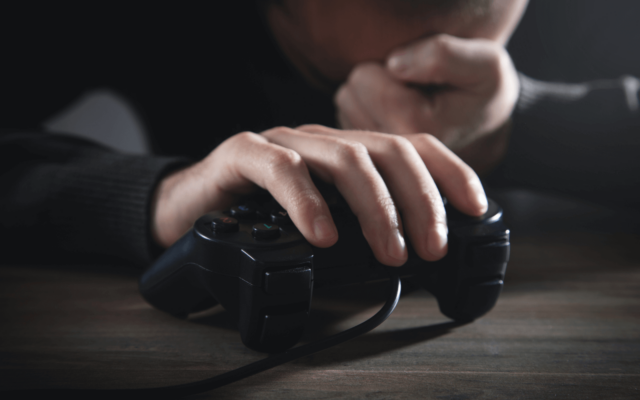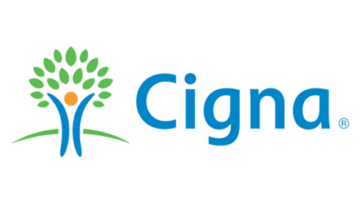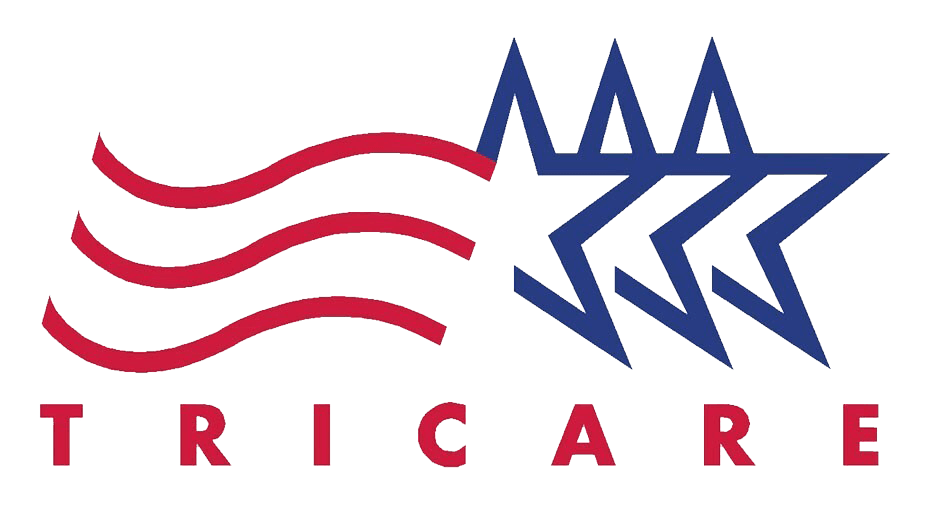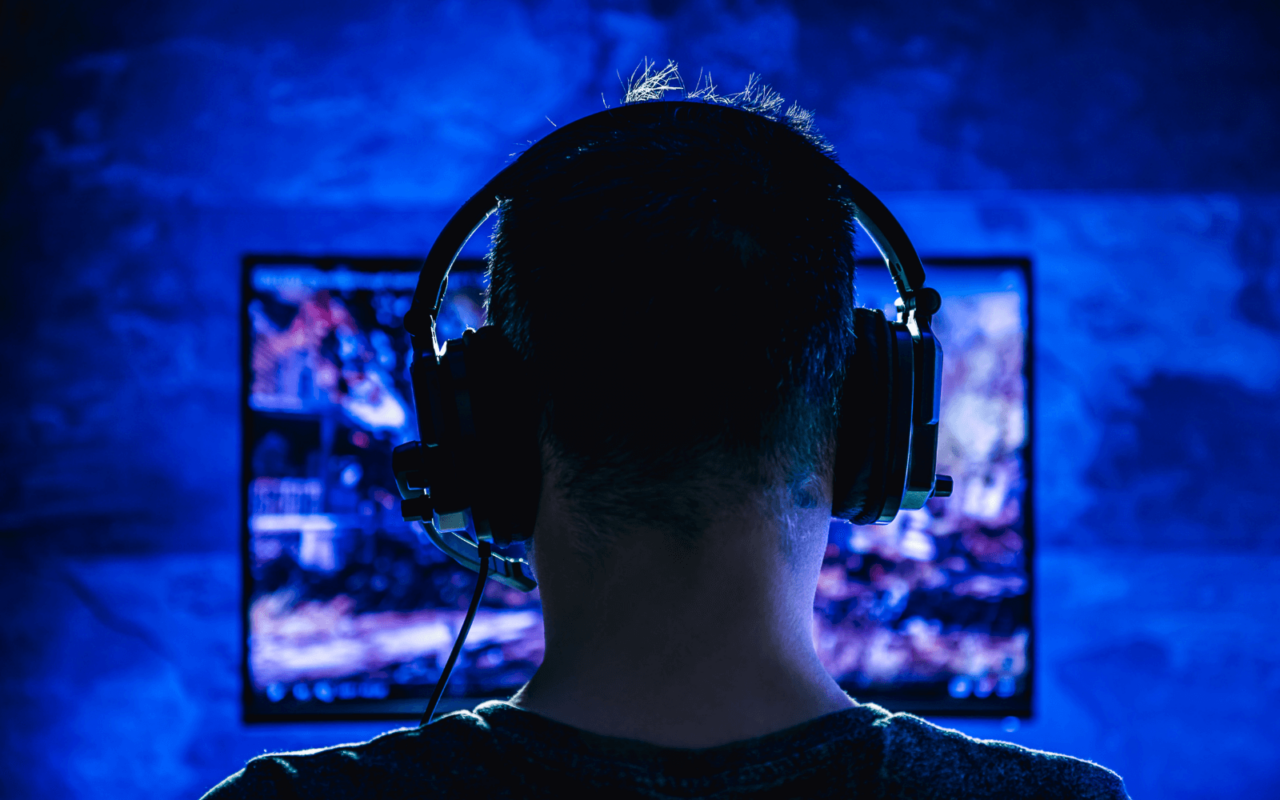In today’s hyper-connected world, gaming has become a ubiquitous part of our lives. For many, it’s a source of entertainment, relaxation, and even social connection. However, for some, gaming can spiral into an addiction, disrupting daily life, relationships, and mental health. At Omega Recovery, we understand the complexities of gaming addiction and are committed to helping individuals regain control and find balance. In this blog, we’ll explore the importance of effective gaming addiction treatments, the symptoms and causes of gaming addiction, and how our specialized programs can provide the support needed for lasting recovery.
Understanding Gaming Addiction
Gaming addiction, also known as Internet Gaming Disorder, is a behavioral addiction characterized by excessive and compulsive gaming, often at the expense of other responsibilities and activities. While gaming addiction is not yet officially recognized as a standalone disorder in the DSM-5, its impact on mental health and well-being is undeniable. The World Health Organization (WHO) has included Gaming Disorder in its International Classification of Diseases (ICD-11), highlighting the growing recognition of this issue.
Gaming addiction can affect individuals of all ages, but it is particularly prevalent among adolescents and young adults. The immersive nature of modern video games, with their engaging storylines, social components, and reward systems, can make them highly addictive. For some, gaming becomes a way to escape stress, cope with emotions, or fill a void in their lives. However, when gaming starts to interfere with daily functioning, it’s time to seek help.
Symptoms of Gaming Addiction
Recognizing the signs of gaming addiction is the first step toward recovery. While everyone’s experience is unique, common symptoms include:
- Preoccupation with Gaming: Constantly thinking about gaming, even when not playing.
- Loss of Control: Inability to limit the amount of time spent gaming.
- Withdrawal Symptoms: Irritability, anxiety, or sadness when unable to play.
- Tolerance: Needing to spend more time gaming to achieve the same level of satisfaction.
- Neglect of Responsibilities: Failing to meet work, school, or family obligations due to gaming.
- Loss of Interest in Other Activities: Abandoning hobbies, sports, or social activities in favor of gaming.
- Continued Gaming Despite Negative Consequences: Persisting with gaming even when it leads to problems in relationships, health, or finances.
- Deception: Lying to family or friends about the amount of time spent gaming.
- Using Gaming as an Escape: Relying on gaming to avoid dealing with stress, anxiety, or depression.
If you or a loved one is experiencing these symptoms, it may be time to explore gaming addiction treatments.
The Impact of Gaming Addiction
Gaming addiction can have far-reaching consequences, affecting every aspect of an individual’s life. What may start as a harmless hobby can spiral into a compulsive behavior with serious impacts. Here’s a closer look at how gaming addiction can affect various areas of life:
Mental Health
Excessive gaming can worsen or contribute to mental health challenges such as anxiety, depression, and loneliness. Many individuals use gaming as an escape from real-world problems, but this can lead to a cycle of dependency. The constant stimulation and dopamine hits from gaming make it harder to find joy in other activities, leaving individuals feeling isolated and emotionally drained. Over time, this can create a sense of hopelessness or even exacerbate pre-existing mental health conditions.
Physical Health
Spending long hours gaming often comes at the expense of physical well-being. Prolonged gaming sessions can result in eye strain, headaches, and vision problems due to extended screen exposure. Poor posture from sitting for long periods can lead to chronic back and neck pain. Additionally, many gamers experience sleep disturbances, either from staying up too late or due to the stimulating nature of gaming. A sedentary lifestyle can increase the risk of weight gain, cardiovascular issues, and other health problems. In extreme cases, individuals may neglect basic self-care, such as eating, staying hydrated, or maintaining personal hygiene.
Relationships
Gaming addiction can put significant strain on relationships with family, friends, and romantic partners. Loved ones may feel ignored, neglected, or frustrated by the individual’s inability to balance gaming with time spent together. Arguments over gaming habits can become frequent, especially when gaming takes precedence over important family or social commitments. Over time, this strain can lead to feelings of resentment and possibly even the breakdown of close relationships.
Academic and Professional Life
For students and working professionals, gaming addiction can severely impact performance and productivity. Students may skip classes, miss deadlines, or fail to prepare for exams, resulting in falling grades or academic probation. Similarly, employees may find it hard to focus at work, leading to missed deadlines, decreased performance, or disciplinary action. In extreme cases, gaming addiction can result in job loss or academic failure, derailing long-term goals and ambitions.
Financial Consequences
Gaming addiction can also take a toll on an individual’s finances. In-game purchases, subscriptions, and gaming equipment can quickly add up, sometimes costing hundreds or even thousands of dollars. For some, the pressure to keep up with new games, downloadable content, or competitive gear leads to overspending and financial hardship. In severe cases, individuals may turn to risky behaviors like gambling, borrowing money, or even stealing to fund their gaming habits, creating a cycle of financial instability and stress.
Social Isolation
While gaming can sometimes provide a sense of community through online interactions, excessive gaming can also lead to social isolation. Time spent gaming often replaces real-world social activities, leaving individuals disconnected from friends and family. Over time, this isolation can make it even harder to reintegrate into social settings, deepening feelings of loneliness and alienation.
Cognitive and Behavioral Impacts
Gaming addiction can also influence cognitive and behavioral patterns. Individuals may struggle with impulse control, finding it difficult to resist the urge to play even when it disrupts other responsibilities. Prolonged gaming can also impact attention span and decision-making skills, making it harder to focus on complex tasks or plan for the future. In some cases, the constant exposure to violent or competitive gaming environments may even lead to heightened aggression or frustration in real-life situations.
By understanding the wide range of consequences associated with gaming addiction, individuals and their loved ones can better recognize warning signs and seek strategies for intervention and recovery.

Causes and Risk Factors
Understanding the root causes of gaming addiction is essential for effective treatment. While the exact causes can vary, common risk factors include:
- Mental Health Issues: Individuals with anxiety, depression, ADHD, or other mental health conditions may be more susceptible to gaming addiction.
- Social Isolation: Those who feel lonely or disconnected from others may turn to gaming as a way to fill the void.
- Stress and Trauma: Gaming can serve as a coping mechanism for individuals dealing with stress, trauma, or difficult life circumstances.
- Personality Traits: Certain personality traits, such as impulsivity or a tendency toward escapism, can increase the risk of addiction.
- Environmental Factors: A lack of parental supervision, easy access to gaming devices, and a culture that glorifies gaming can contribute to the development of addiction.
The Importance of Professional Gaming Addiction Treatments
While some individuals may attempt to cut back on gaming on their own, overcoming addiction often requires professional support. Effective gaming addiction treatments address not only the symptoms but also the underlying causes of addiction. At Omega Recovery, we offer a range of evidence-based programs designed to help individuals regain control of their lives.
1. Partial Hospitalization Program (PHP)
Our Partial Hospitalization Program offers a structured, intensive level of care for individuals struggling with gaming addiction. PHP is ideal for those who need daily support but do not require 24/7 supervision. Through a combination of individual therapy, group counseling, and skill-building workshops, participants learn to manage triggers, develop healthier habits, and regain control over their lives.
2. Adult Intensive Outpatient Program (IOP)
For those balancing work, school, or family commitments, our Adult IOP provides flexible yet comprehensive gaming addiction treatments. This program includes therapy sessions several times a week, focusing on relapse prevention, emotional regulation, and building a supportive community.
3. Supportive Outpatient Rehab
Our Supportive Outpatient Rehab is designed for individuals who have completed higher levels of care but still need ongoing support. This program helps participants transition back into their daily lives while continuing to work on their recovery goals.
4. Failure to Launch Program
Gaming addiction often intersects with challenges like social isolation, lack of motivation, or difficulty transitioning to adulthood. Our Failure to Launch Program is tailored to young adults who need guidance in developing life skills, building confidence, and finding purpose beyond the screen.
5. Alumni Program
Recovery doesn’t end when treatment does. Our Alumni Program offers ongoing support through regular check-ins, social events, and access to resources. This program ensures that individuals remain connected and empowered in their journey toward lasting recovery.
6. Case Management
At Omega Recovery, we understand that gaming addiction often coexists with other challenges, such as mental health disorders or family dynamics. Our Case Management services provide personalized support, helping individuals navigate these complexities and access the resources they need to thrive.
Tips for Managing Gaming Addiction
While professional gaming addiction treatments are essential, there are also steps individuals can take to manage their relationship with gaming:
- Set Boundaries: Establish clear limits on gaming time and stick to them. Use timers or alarms to remind yourself when it’s time to stop.
- Find Alternatives: Explore hobbies and activities that provide fulfillment and joy. Whether it’s sports, art, or volunteering, finding new interests can help reduce the urge to game.
- Build a Support Network: Surround yourself with people who understand and support your recovery. Share your goals with friends and family, and consider joining a support group.
- Practice Self-Care: Prioritize physical and mental well-being through exercise, meditation, and healthy habits. Taking care of your body and mind can make it easier to resist the pull of gaming.
- Seek Help: If gaming is negatively impacting your life, don’t hesitate to reach out for professional support. Early intervention can prevent the addiction from worsening.
The Role of Family in Recovery
Family support plays a crucial role in the recovery process. Loved ones can help by:
- Educating themselves about gaming addiction and its effects.
- Encouraging open and non-judgmental communication.
- Setting boundaries around gaming while offering emotional support.
- Participating in family therapy sessions to address underlying issues and improve relationships.
At Omega Recovery, we offer family-focused therapies as part of our gaming addiction treatments, ensuring that the entire family unit is involved in the healing process.
The Future of Gaming Addiction Treatments
As gaming continues to evolve, so too must our approach to treating gaming addiction. Advances in technology, such as virtual reality and artificial intelligence, are being explored as tools for therapy and intervention. Additionally, there is a growing emphasis on prevention, with schools, parents, and policymakers working together to promote healthy gaming habits and raise awareness about the risks of addiction.
At Omega Recovery, we are committed to staying at the forefront of gaming addiction treatments, incorporating the latest research and innovations into our programs. Our goal is to empower individuals to live fulfilling, balanced lives, free from the grip of addiction.
Take the First Step Toward Recovery
Gaming addiction doesn’t have to define your life. With the right gaming addiction treatments, you can reclaim your time, relationships, and sense of purpose. At Omega Recovery, we’re here to guide you every step of the way.
If you or a loved one is struggling with gaming addiction, we invite you to explore our programs and take the first step toward a healthier, more balanced life. Contact us today to learn more about our gaming addiction treatments and how we can help you find the support you need.
Remember, recovery is possible, and you don’t have to face it alone. Let Omega Recovery be your partner in healing. For more information, visit our website https://omegarecovery.org/ or call us at (512) 601-5407.
Omega Recovery is dedicated to providing compassionate, evidence-based care for individuals struggling with gaming addiction and other behavioral health challenges. Our programs are designed to empower individuals to live fulfilling, balanced lives. Reach out to us today to learn more about our gaming addiction treatments and start your journey toward recovery.







